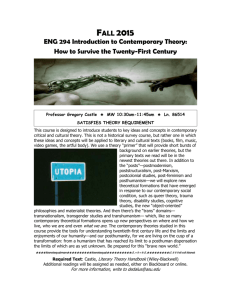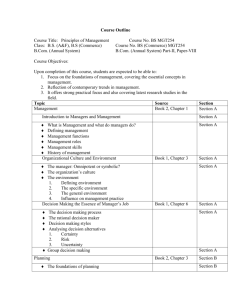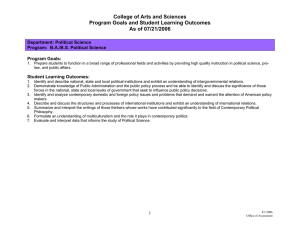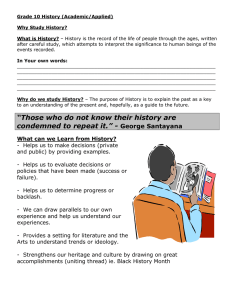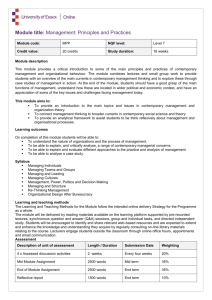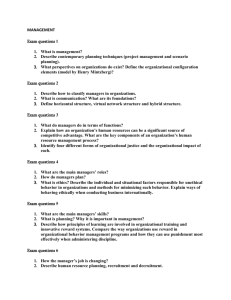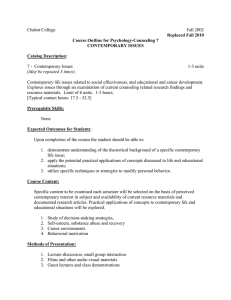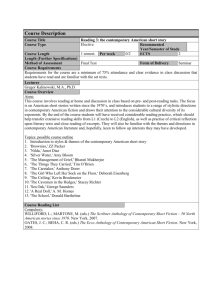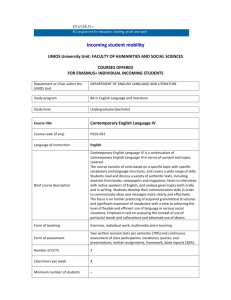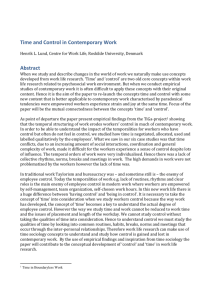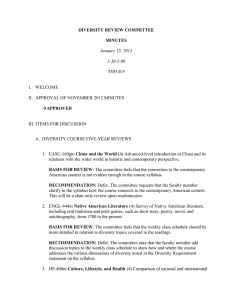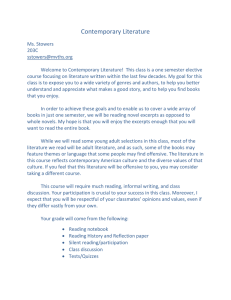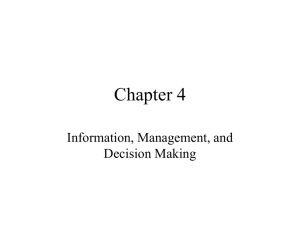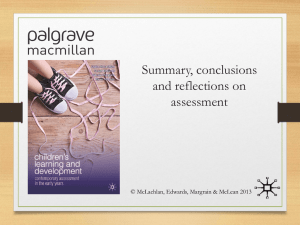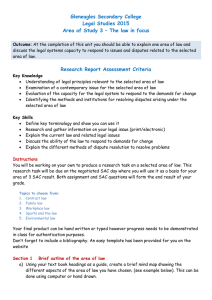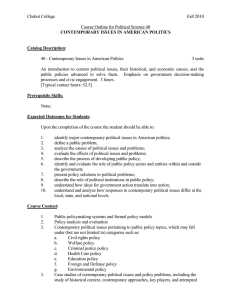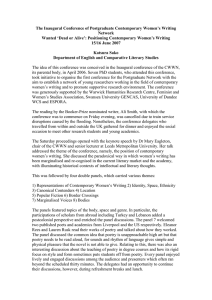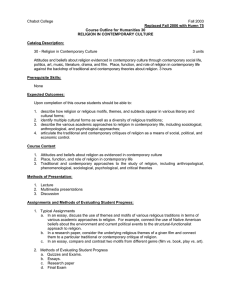Management Course Outline
advertisement
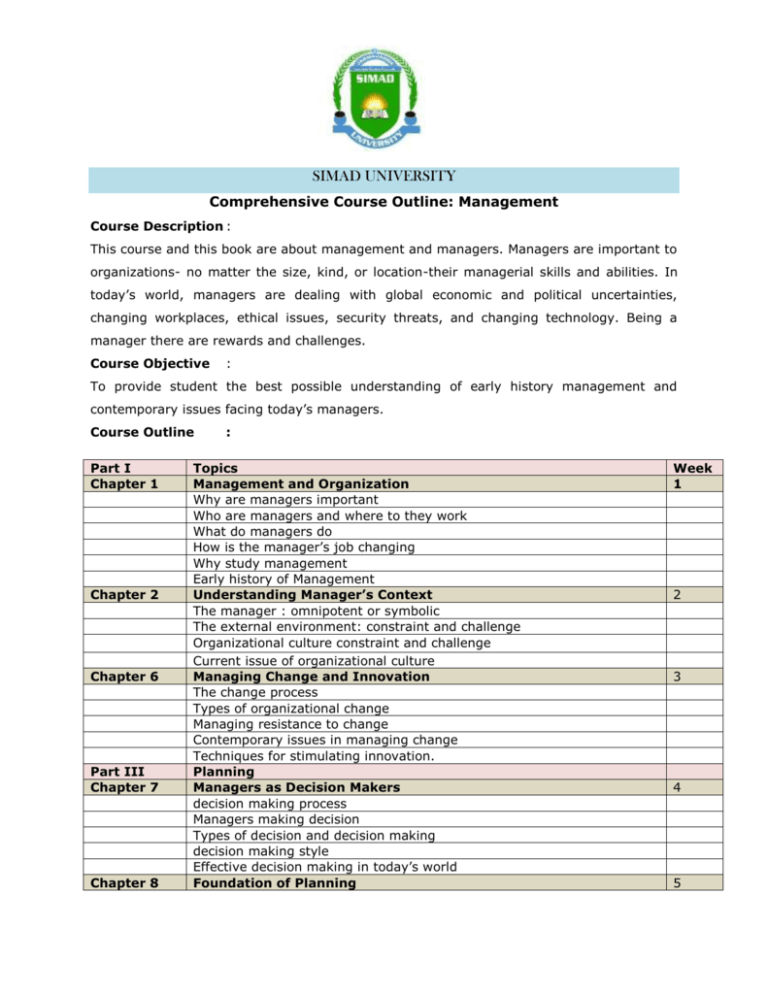
SIMAD UNIVERSITY Comprehensive Course Outline: Management Course Description : This course and this book are about management and managers. Managers are important to organizations- no matter the size, kind, or location-their managerial skills and abilities. In today’s world, managers are dealing with global economic and political uncertainties, changing workplaces, ethical issues, security threats, and changing technology. Being a manager there are rewards and challenges. Course Objective : To provide student the best possible understanding of early history management and contemporary issues facing today’s managers. Course Outline Part I Chapter 1 Chapter 2 Chapter 6 Part III Chapter 7 Chapter 8 : Topics Management and Organization Why are managers important Who are managers and where to they work What do managers do How is the manager’s job changing Why study management Early history of Management Understanding Manager’s Context The manager : omnipotent or symbolic The external environment: constraint and challenge Organizational culture constraint and challenge Current issue of organizational culture Managing Change and Innovation The change process Types of organizational change Managing resistance to change Contemporary issues in managing change Techniques for stimulating innovation. Planning Managers as Decision Makers decision making process Managers making decision Types of decision and decision making decision making style Effective decision making in today’s world Foundation of Planning Week 1 2 3 4 5 Chapter 9 what and why of planning Goals and plans Setting goals and developing plans Strategic Management Definition and the importance of strategic management What managers do during the six steps of the strategic management process The three types of corporate strategies. Description of competitive advantage and the competitive strategies organizations use to get it. Current strategic management issues. 6 Midterm Exam Part IV Chapter 10 Chapter 12 Chapter 13 Part IV Chapter 17 Part VI Chapter 18 Organizing Basic organizational design Designing organizational structure Mechanistic and organic design Contingency factors affecting organizational choice Traditional organizational design Managing Human Resource Human Resource Management Process Identifying and selecting competent Employees Providing employees with needed skills and knowledge Retaining competent, high performance employees Managing Teams Groups and the stages of group development The major components that determine group performance and satisfaction. Definition of teams and best practices influencing team performance. Contemporary issues in managing teams. Leading Managers as Leaders Definition of leader and leadership Compare and contrast early theories of leadership Describe the three major contingency theories of leadership Describe contemporary views of leadership. Discuss contemporary issues affecting leadership. Controlling Introduction to Controlling What is control and why is it important the control process Controlling for organizational performance Tools for measuring organizational performance Presentations 7 8 9 8 9 12, 13 and 14 Course Coordinator: Ahmed Hassan Mohamud
